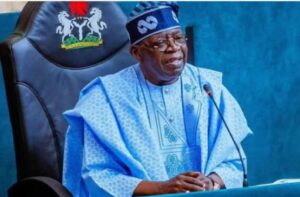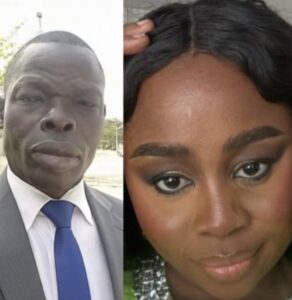Tinubu’s Vacation: Ignoring the Rules and What It Means for Democracy
Tinubu’s Vacation: Ignoring the Rules and What It Means for Democracy

Last week, President Bola Tinubu departed for a two-week vacation in the United Kingdom, during which his media office stated he would continue to “work.” However, this trip raises serious questions regarding compliance with the 1999 Constitution, specifically Section 145(1), which mandates that the president notify the Senate and House of Representatives before taking a vacation. This notification should include a formal transfer of authority to the Vice President, who would serve as Acting President until the president’s return.
Section 145(2) further stipulates that if the president fails to provide this notification within 21 days, the National Assembly can appoint the Vice President as Acting President through a simple majority resolution. These provisions were put in place to prevent the turmoil experienced during the incapacitation of former Presidents Umar Yar’Adua and Muhammadu Buhari.
It appears President Tinubu has opted to overlook this constitutional obligation, possibly due to rising political uncertainties. His decision may reflect lessons learned from Buhari’s presidency, when the Vice President, Yemi Osinbajo, made significant decisions in Buhari’s absence, including the controversial appointment of Justice Walter Onnoghen as Chief Justice of Nigeria. This appointment led to Buhari’s subsequent illegal removal of Onnoghen through the Code of Conduct Tribunal.
Such distrust among leaders should not persist. The Vice President is typically chosen as a partner in governance, and there is no constitutional basis for fearing usurpation of power when the president is available to resume duties.
More troubling is the relative silence surrounding Tinubu’s failure to transfer power, contrasting sharply with the public outrage seen during the tenures of Yar’Adua, Goodluck Jonathan, and Buhari. Are we, as citizens, becoming complacent in the face of constitutional violations? By allowing these actions to go unchallenged, we risk enabling an erosion of our democratic principles.
We must reassert our role as vigilant protectors of democracy. Our leaders have increasingly operated without regard for constitutional guidelines, perpetuating nepotism while relying on foreign health services, leaving our own systems neglected.
The National Assembly has grown silent on these constitutional breaches. It is imperative that we advocate for adherence to our Constitution, or we may face the loss of our democratic rights.
TRENDING SONGS
 RCCG PASTOR ANGRY OVER CALLING Him“MR” INSTEAD OF “DR,” DECLARES CURSE ONLINE
RCCG PASTOR ANGRY OVER CALLING Him“MR” INSTEAD OF “DR,” DECLARES CURSE ONLINE
 NPMA Appeals to Nigerian Government for Compensation After Lagos Market Fire
NPMA Appeals to Nigerian Government for Compensation After Lagos Market Fire
 Rest Every Four Hours, FRSC Issues Safety Guide for Fasting Motorists
Rest Every Four Hours, FRSC Issues Safety Guide for Fasting Motorists
 NNPC Boss Ojulari Bags UK Energy Institute Fellowship
NNPC Boss Ojulari Bags UK Energy Institute Fellowship
 Shock in Anambra: Bride Disappears Moments Before Wedding
Shock in Anambra: Bride Disappears Moments Before Wedding
 Nigerian Woman Returns ₦330 Million Accidentally Credited to Her Account
Nigerian Woman Returns ₦330 Million Accidentally Credited to Her Account
 APC Don Reach Morocco?’ VeryDarkMan Reacts to Seyi Tinubu Poster
APC Don Reach Morocco?’ VeryDarkMan Reacts to Seyi Tinubu Poster
 Bride Breaks Down in Tears as Wedding Meals Were Kept Secretly While Guests Go Home Hungry
Bride Breaks Down in Tears as Wedding Meals Were Kept Secretly While Guests Go Home Hungry
 Odogwu by Day, Robber by Night: How Marriage Joy Turned Into Tragedy
Odogwu by Day, Robber by Night: How Marriage Joy Turned Into Tragedy
 Nigerian Officials Allegedly Pocket N4–6B Weekly Through Smuggling Cartels at Seme–Badagry Border
Nigerian Officials Allegedly Pocket N4–6B Weekly Through Smuggling Cartels at Seme–Badagry Border
Share this post with your friends on ![]()













